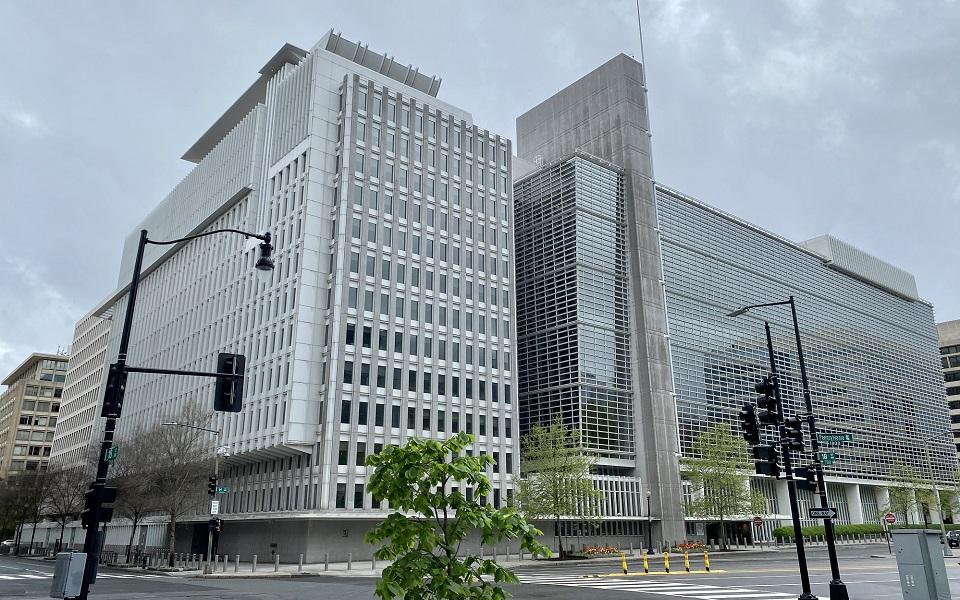World Bank further trims Philippines' economic growth forecast

Multilateral lender World Bank has downgraded further its economic growth outlook for the Philippines this year due to the extended recession in the first quarter along with the reimposition of stricter quarantine measures due to the surge in COVID-19 cases.
In its latest Philippine Economic Update released Tuesday, the World Bank said it is projecting the country’s economy to grow by 4.7% — a downgrade from its earlier forecast of 5.5% in its April 2021 East Asia and Pacific Economic Update report.
The multilateral lender’s revised projection is also slower than the already trimmed growth outlook of 6% to 7% of the Duterte administration’s economic managers.
At a virtual press conference, World Bank economist Kevin Chua said the downgraded outlook was due to the “weaker-than-expected” economic contraction in the first quarter, the reimposition of stricter quarantine measures in April and May in response to a surge in COVID-19 infections, and the lingering challenges from high inflation and losses in household incomes.
The Philippine economy extended its recession for the fifth straight quarter in the January to March 2021 period, recording a 4.2% contraction due to the decline in economic activities amid the reimposition of the strictest quarantine level in Metro Manila, Cavite, Laguna, Rizal, and Bulacan — collectively known as NCR Plus bubble.
NCR Plus was placed under enhanced community quarantine (ECQ) from March 29 to April 11, followed by the modified ECQ which lasted until May 14 as daily new COVID-19 cases saw an all-time surge.
Since May 15 the bubble has been under a more relaxed general community quarantine but with “heightened restrictions.”
While the economy continues to be in a recession, consumer prices have steadily increased to an average of 4.4% from January to May, hovering above the government's target band of 2% to 4%.
Chua said the resurgence of COVID-19 cases and the reimposition of quarantine measures “held back early signs of an economic rebound.”
Nonetheless, he said the economy is expected to recover over the forecast horizon “but this growth projection is subject to downside risks.”
“The growth prospects hinge on the country’s ability to manage the COVID-19 health crisis. The medium-term growth trajectory depends on the effective pandemic containment, delivery of mass vaccination, and further loosening of mobility restrictions,” Chua said.
“While mass vaccination began in March, global vaccine supply constraints and vaccine hesitancy among Filipinos may delay widespread local inoculation,” he added.
Chua said that still the World Bank’s growth projection assumes that vaccination will accelerate in the second half of 2021 with the arrival of more vaccine supplies.
“Consequently, domestic demand is expected to gradually pick up this year before accelerating n 2022,” he said.
For 2022, the World Bank is expecting the Philippine economy to accelerate to 5.9% and 6% in 2023.
“This recovery is anchored on anticipated global rebound including the country’s key trading partners such US and China. This will translate into higher export demand and better prospect of remittances,” Chua said.
“I think, starting in the second half of 2021 we will see a faster vaccination rollout that would impact our confidence level and domestic demand will ramp up towards 2022,” he added.
For his part, World Bank country director for Brunei, Malaysia, Philippines, and Thailand Ndiame Diop said the global economic rebound, especially among the country’s trading partners, will boost exports and increase remittances, strengthening recovery in the Philippines.
“The country can take advantage of this development by ramping up vaccination and improving overall pandemic response to control infection rates and boost consumer and business confidence,” Diop said.
NEDA response
In response to the World Bank’s revised growth forecast, the National Economic and Development Authority noted that “the country's growth prospects depend largely on how well we can safely reopen the economy, fully implement the recovery package, pass measures to attract foreign investment, and accelerate the vaccine program to inoculate 70 million Filipinos by the end of the year so that more Filipinos can safely return to work.”
“Because of the resurgence in COVID-19 infections from end-March to mid-May, the government re-imposed more stringent restrictions, which resulted in a significant decline in COVID-19 cases in the NCR Plus area. We have used the period to further improve our strategies to manage risks,” the NEDA said.
The socioeconomic planning agency said a fourth National Action Plan is now being formulated to accelerate economic recovery and improve our growth prospects. —KBK/BM, GMA News



